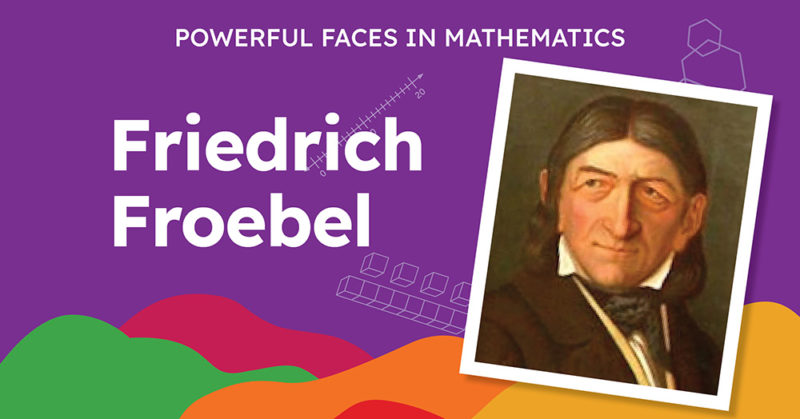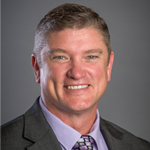Mathematicians
Powerful Faces in Mathematics: Friedrich Froebel
As April, The Month of the Young Child, nears its end, we want to celebrate one of the founders of early childhood education. When thinking about early learning, questions such as, “When should they start school?” “Should we start with a full day or half day?” “To PreK or not to PreK?” “Are we expecting too much from our children too soon?” “Can’t we just let them be kids?” circulate wildly when discussing our littles and their course through this world. However, through this collective confusion, one constant remains, and that is nurturing their health, physical development, and promoting their innate mental abilities is of the utmost importance.
These questions are not new; in fact these concerns go back 200 years! In the 1800’s Kindergarten was “invented” by German pedagogue and acclaimed educational author, Friedrich Froebel. Froebel was also greatly interested in nature and human’s connection to it. He believed that plants, just like the human psyche, needed nourishment and structured autonomy to thrive. After his time in the service, Froebel had a brief stint cataloging and studying minerals at the Museum of Mineralogy in Florence. There he observed what presumably were ‘lifeless’ specimens of mineral and stone to find germs still transforming and developing. Fascinated by this observation, he stated that “rocks and crystals served (him) as a mirror wherein (he) might descry mankind, and man’s development and history…”. Stimulated by his observations he moved his focus (even turning down a professorship in Stockholm) to education and childhood development, publishing multiple educational pamphlets as well as his main work, ‘The Education of Man’. He believed “play is the highest expression of human development in childhood for it alone is the free expression of what is in the child’s soul…To learn a thing in life and through doing is much more developing, cultivating, and strengthening than to learn it merely through the verbal communication of ideas.”
In 1837 Froebel opened his fist ‘Kindergarten’ following his tenets for child development and education:
- Children are intrinsically motivated and eager to understand the world around them
- Play should be encouraged in both groups and solo activity to promote self-expression and curiosity
- Children should be given choices and allowed to make mistakes
- Focus on what children can do rather than what they cannot do
- A child health (both physical and mental) is just as important and should be emphasized in learning
- Discourse, language, and listening to each other is a benefit
Froebel’s tactics and learnings have been studied, emulated, and proven time and again in many a case study and curriculum development.
- Case Study: The Seeds of Learning: Young Children Develop Important Skills Through Their Gardening Activities at a Midwestern Early Education Program
- Case Study: Spatial structuring and the development of number sense: A case study of young children working with blocks
Today (April 21 – the anniversary of Froebel’s birth), and throughout this wonderful Month of the Young Child (established by NAEYC in 1971) we celebrate young children and their natural abilities to learn and reason and make sense of the world around them and their place in it.
ORIGO is proud to mirror these principles in our Stepping Stones PreK program. Have a look to see just how we give children the best preparation for learning and check out our previous articles on Engaging Young Learners and our webinar: Stepping Stones Pre-K: Play for Their Future.
Sources:
https://www.naeyc.org/our-work/families/support-learning-with-play




